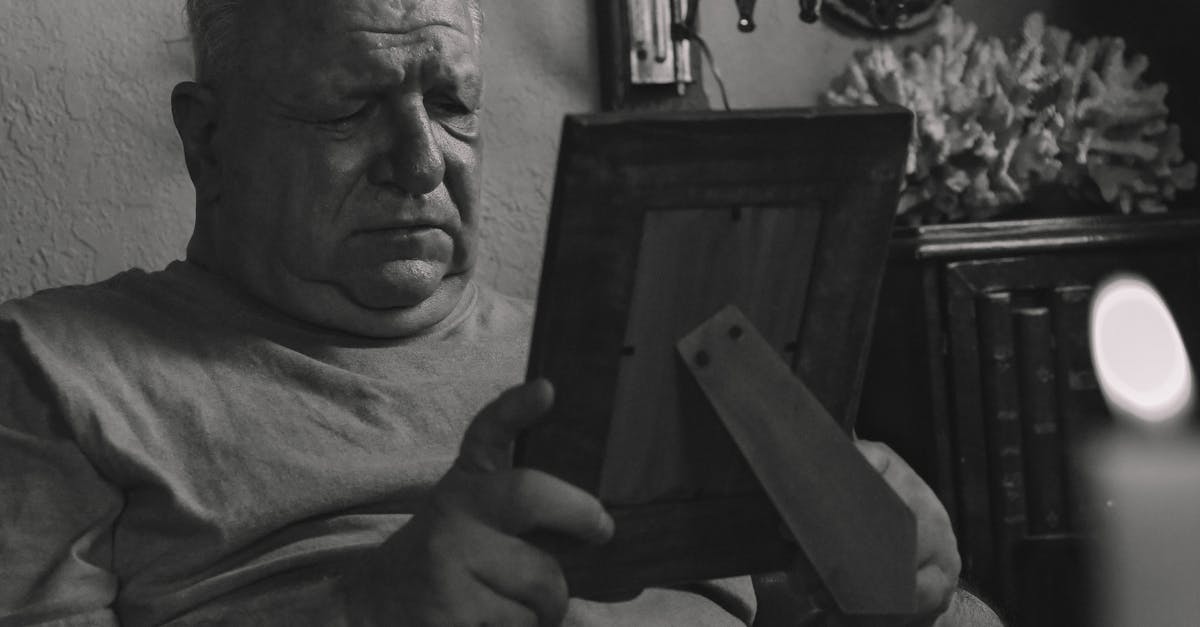Understanding Probate and How to Navigate Contentious Probate Disputes
Key Takeaways
- Grasping the concept of estate administration
- Summary of inheritance conflicts
- Clarification of disputed estate matters
- Involving contentious estate lawyers
- Managing estate legal processes
Understanding Probate
Probate involves the legal process of validating a deceased person's will and managing their estate. Engaging with this process often leads to probate disputes, particularly regarding claims against an estate. A grant of probate is essential for executing the terms of a will, but challenges can arise, prompting litigation and dispute resolution strategies. Civil partners may also face unique issues in this context, as the interpretation of wills might be contested. Conditional fee agreements can be a useful option for those seeking legal representation in such matters, allowing clients to pursue claims without upfront costs. Exploring alternative dispute resolution methods can also provide a pathway to settle probate disputes amicably, potentially avoiding the need for extensive litigation funding in court.
The Process of Obtaining a Grant of Probate
Obtaining a grant of probate involves several essential steps that ensure the estate is managed according to the deceased's wishes. Executors must first locate the will and verify its validity under the Wills Act 1837. Once confirmed, they must file an application with the court, providing details about the estate's assets and liabilities. This process can sometimes lead to probate disputes, especially if there are claims of coercion or if a civil partner raises objections regarding inheritance. Seeking legal advice during this time can help navigate potential pitfalls and clarify any disagreements that may arise.
After the application is submitted, the court will review it to ensure all requirements have been met. If any issues are identified, this may lead to further negotiation or mediation to resolve disputes among interested parties. Executors must be prepared to address any challenges posed by potential claimants, as litigation can arise from alleged breaches of duty. The court of protection may also be involved if disputes concern individuals lacking the capacity to manage their affairs. Successfully obtaining the grant of probate allows the executor to carry out their responsibilities in administering the estate.
Key Probate Rules to Know
Understanding the legal rules surrounding probate is essential for navigating potential probate disputes effectively. The Inheritance (Provision for Family and Dependants) Act 1975 provides claimants with grounds to challenge a will if they believe adequate provision has not been made for them. Legal document requirements must be adhered to, particularly concerning estates and beneficiaries, as failing to comply can complicate negotiations and lead to further legal action. Legal expense insurance can play a pivotal role in managing the costs of such disputes, ensuring that beneficiaries are not unduly burdened by financial strain during the probate process.
The Civil Partnership Act 2004 has implications for how estates are handled, especially regarding the rights of partners in probate disputes. Lawyers skilled in this area can offer invaluable guidance on legal processes related to inheritance tax and other financial considerations. Claimants should be ready to present their case clearly, as the law expects all parties involved to engage in good faith during negotiations. Awareness of these key rules helps to mitigate risks and promotes a smoother resolution of any disputes that may arise during probate proceedings.
| Probate Rule | Description | Important Act/Regulation |
|---|---|---|
| Claimant Rights | Allows individuals to challenge a will if adequate provision is not made. | Inheritance (Provision for Family and Dependants) Act 1975 |
| Legal Document Requirements | Compliance with legal documentation is necessary to avoid complications. | N/A |
| Cost Management | Legal expense insurance assists in managing costs during disputes. | N/A |
| Rights of Partners | Specifies how estates are handled for civil partnerships. | Civil Partnership Act 2004 |
Overview of Probate Disputes
Probate disputes often arise due to disagreements among beneficiaries regarding the distribution of an estate. Complaints can stem from perceived negligence on the part of executors, leading to claims against them for liabilities incurred during the administration process. Issues may also emerge from complicating factors, such as the marriage status of beneficiaries or the interpretation of the deceased's wishes. Fees associated with probate proceedings can be a point of contention as well, with claimants seeking clarity on the payment expectations for legal services rendered by barristers or brokers. Understanding these dynamics is crucial for navigating the complexities of probate disputes effectively.
| Dispute Type | Common Causes | Potential Outcomes |
|---|---|---|
| Executor Misconduct | Negligence in asset management | Removal of executor, financial compensation |
| Will Contest | Disputed validity of the will | Will invalidation, new will enforcement |
| Beneficiary Disagreement | Disputes over asset distribution | Re-negotiation of distribution, mediation |
| Fee Disputes | Unclear legal fee structures | Fee reduction, alternative dispute resolution |
What Constitutes a Probate Dispute?
Probate disputes typically arise from disagreements over the distribution of an estate following a person's death. These disputes can involve various inheritance issues, such as contested wills, claims against the estate, or disagreements regarding the interpretation of probate rules. A probate dispute may escalate into a contentious probate matter, requiring the expertise of a solicitor to navigate the legal complexities involved. Contentious probate cases often centre around the validity of a will or challenges to the appointed executors' decisions.
Contentious probate refers to conflicts that emerge during the probate process, often leading to contentious probate disputes that can significantly delay inheritance. A contentious probate claim may be filed by an interested party who feels wronged by the distribution process, prompting legal scrutiny. These disputes can arise from many factors, including familial tensions and unclear directives in a will. Understanding the nature of probate disputes is essential for parties seeking to resolve their issues amicably or through litigation.
Common Causes of Contention in Probate Matters
Disagreements often arise from unclear or ambiguous terms within a will. Such misunderstandings can lead to probate disputes, as beneficiaries may interpret the provisions differently. The presence of family tensions or previous disagreements can exacerbate these issues, resulting in contentious probate solicitors becoming involved to resolve the situation. Legal disputes can extend the duration of the probate application, turning what should be a straightforward process into long probate proceedings. Probate litigation solicitors and specialists frequently handle these disputes to ensure fair resolutions.
Another common source of contention involves the validity of the will itself. Claims may be made that a will was not executed correctly or that the testator lacked the mental capacity at the time of signing. These claims can lead to probate litigation, drawing in probate lawyers, contentious probate barristers, and other experts. Disputes over the authenticity of documents can complicate probate/letters issuance. Navigating these issues necessitates the expertise of probate specialists who can guide clients through the intricacies of legal disputes within the probate context.
Contentious Probate Disputes Explained
Contentious probate disputes often arise in the context of inheritance disputes, reflecting the complexities and emotional weight surrounding the distribution of an estate. Many disputes can stem from family disagreements over wills, especially in high-profile disputes where substantial assets are involved. Legal challenges may involve contested estate matters, such as those concerning mutual wills or claims that necessitate a litigation loan to pursue. Engaging with experts like Duncan Lewis Probate can help navigate these contentious estate matters, ensuring individuals understand the issue fee associated with initiating a dispute. Ultimately, addressing probate disputes requires careful consideration to mitigate the risks of protracted family disputes and achieve a fair resolution.
- Understanding the grounds for contesting a will can mitigate potential disputes.
- Seeking early legal advice can help clarify rights and options.
- Maintaining open communication among family members can reduce tensions.
- Documenting all discussions and decisions related to the estate can provide clarity.
- Mediation may serve as a valuable tool to resolve disputes amicably.
- Be aware of the time limits for contesting a will to ensure claims are filed promptly.
- Engaging a specialist in contentious probate can increase the chances of a favourable outcome.
Identifying Contentious Probate Claims
Contentious probate claims often arise from disagreements regarding the validity of a deceased person's will. Common claims include challenges to the authenticity of the document, with allegations of fraudulent wills being a significant factor. Under the Wills Act, individuals may contest a will if they believe it does not reflect the true intentions of the deceased. Such disputes can lead to lengthy legal battles, resulting in substantial court fees and legal expenses, making it crucial to seek legal help early on.
Another prevalent source of probate disputes can stem from disagreements between beneficiaries regarding the distribution of assets. Conflicts may arise if parties believe their legal rights have not been upheld within the terms of the will or if there is an absence of a clear agreement among heirs. Often, litigation solicitors are required to navigate these complex issues, which can escalate costs through additional court fees and legal fees if not resolved amicably. Understanding these dynamics can help parties involved in contentious probate claims to better prepare for potential challenges ahead.
The Role of Contentious Probate Proceedings
Contentious probate proceedings serve to resolve disputes arising from the administration of estates. These legal encounters often stem from claims under the Inheritance Act, particularly when relatives challenge the distribution of assets. Individuals may argue undue influence or coercion, especially in cases involving contentious trusts or the Civil Partnership Act. The complexities of these cases can lead to significant legal costs, making fee arrangements a crucial consideration for those involved. Litigation-specific advice helps navigate these intricate matters, ensuring that all parties understand their rights and options.
The role of contentious probate proceedings extends beyond mere resolution; they also provide a framework for addressing grievances related to inheritance and estate distribution. As probate disputes unfold, claimants must be prepared for the potential of escalating legal expenses. Engaging with experienced solicitors who specialise in contentious probate is vital for effective representation. These professionals can offer bespoke strategies, guiding clients through the nuances of their claims, including inheritance act claims, and advising on the risks associated with litigation.
Engaging with Contentious Probate Solicitors
Choosing the right contentious probate solicitor is crucial for effectively navigating probate disputes. A thorough understanding of the issue at hand will guide you in selecting a solicitor who has experience with similar cases, whether it involves a spouse contesting an estate or dealing with numerous wills that create confusion among potential claimants. Solicitors typically offer various payment arrangements, and it is essential to clarify costs liability and any obligations you may have regarding such fee arrangements. Being transparent about your personal claim will facilitate a more efficient process, ensuring that all involved parties are aware of their payment liabilities. A well-chosen solicitor can help mitigate the complexities surrounding probate disputes and work towards achieving an amicable resolution.
- Research the solicitor’s credentials and past case outcomes.
- Schedule an initial consultation to discuss your specific needs and concerns.
- Ask about their experience with similar contentious probate cases.
- Clarify their fee structure and any potential additional costs.
- Ensure they communicate effectively and are approachable for ongoing questions.
- Check client reviews and testimonials for insight into their reputation.
- Confirm their understanding of relevant probate laws and regulations.
How to Choose the Right Contentious Probate Solicitor
Selecting the right contentious probate solicitor is essential, especially in complex estates involving probate disputes. Look for private client lawyers with experience handling cases that involve defendant beneficiaries and former spouses. These lawyers should have a deep understanding of court proceedings and the legal authority required to navigate the nuances of probate law. Their expertise can help in mitigating issues related to influence or coercion, ensuring that estate funds are managed properly.
Consider solicitors who offer flexible fee arrangements and are transparent about costs. A good solicitor should provide options such as event/legal expenses insurance or specialist litigation loans to support your case. It's crucial to assess their track record, especially in managing professional negligence claims related to probate disputes. Ultimately, the right solicitor will help you feel confident in tackling the intricacies of the law while safeguarding your interests throughout the probate process.
What to Expect from Contentious Probate Solicitors
Contentious probate solicitors play a crucial role in navigating the complexities of probate disputes. Clients can expect solicitors to provide expert advice on various claims related to the Inheritance Act, which may involve claims brought by spouses or other associations. These professionals guide clients through the intricacies of tax matters and other financial transactions that may arise during inheritance proceedings. Clear communication about fees is essential, ensuring clients are aware of potential deferred payment options and costs associated with handling significant matters.
Engaging with a contentious probate solicitor means having a dedicated advocate for your interests. Clients can anticipate thorough evaluations of their cases, especially concerning professional negligence claims that may have impacted the handling of estates. Solicitors will offer strategic advice tailored to the specifics of each situation, whether it involves defending against claims or initiating legal actions related to probate disputes. Regular updates and accessibility are standard, allowing clients to feel supported throughout the process.
Navigating Probate Proceedings
Understanding the various steps involved in probate proceedings is crucial for a client who may face probate disputes. The process often begins with applying for a grant of probate, a legal document that confirms the validity of a will. Depending on the circumstances, disbursements may arise, covering costs associated with administering the estate. Engaging your own solicitor can provide clarity during this time, as they can handle enquiries and discuss arrangements that best suit your needs. In some cases, event insurance may be recommended to protect against unforeseen costs, ensuring that all financial matters are addressed comprehensively throughout the probate process.
Steps Involved in Probate Proceedings
The probate proceedings typically commence with the appointment of an executor or administrator, who is responsible for managing the deceased's estate. This can lead to probate disputes, especially if partners or family members feel they have a legitimate claim to the estate. It is crucial to gather all available evidence to support any potential challenge to the will. This evidence can include documents, witness statements, or other relevant materials that may influence the outcome of the case.
Parties involved may seek the assistance of contentious probate solicitors to navigate these complex matters. These solicitors can provide insight into the provisions of the will and advise on the grounds for any challenge. In some cases, third party funding may be an option for those who require financial support to pursue their claims. Engaging a third party funder can help alleviate the costs associated with litigation and make it easier for individuals to participate in probate disputes, despite potential financial limitations.
Conclusion
Navigating the complexities of probate disputes can be a challenging experience for estates, particularly for claimants trying to secure their rightful inheritance. Beneficiaries often find themselves embroiled in negotiations that may involve legal documents and the provisions set forth by the Inheritance (Provision for Family and Dependants) Act 1975. The Civil Partnership Act 2004 may also play a crucial role in determining the rights of partners in such disputes. Legal expense insurance can provide essential support in covering the costs associated with these claims, alleviating some burden from those involved. Engaging knowledgeable lawyers who specialise in probate law becomes essential for effectively addressing these issues, especially in the face of potential inheritance tax complications.
FAQS
What factors contribute to contentious probate matters that might lead someone to dispute and/or pursue a claim in court?
The factors that contribute to contentious probate matters depend on several reasons, including allegations of undue influence/coercion, disputes over whether the deceased had made a valid will, or disagreements among beneficiaries about the distribution of the estate. Legal encounters someone faces in these situations can involve significant court expenses, which may include similar fee arrangements depending on the complexity of the case and the dispute brought before the court.
What are the common reasons that lead individuals to dispute and/or pursue a claim brought against a will?
The decision to dispute and/or pursue a claim brought arises from various factors, and it largely depends on the following reasons: concerns over the validity of the will, claims of undue influence, disagreements among beneficiaries regarding the distribution of assets, and issues related to the mental capacity of the deceased at the time of the will's creation.
How can a lack of communication among family members lead to probate disputes?
A lack of communication among family members can often escalate probate disputes as misunderstandings and assumptions may arise regarding the intentions of the deceased, the distribution of assets, or the roles of executors. This lack of clarity can result in individuals feeling excluded or wronged, leading them to dispute the will or pursue a claim in court. Open dialogue is essential to mitigate these tensions and reduce the likelihood of conflicts during the probate process.
How can the distribution of assets be a point of contention in probate disputes?
The distribution of assets can cause significant issues in probate disputes as it often highlights inequalities or perceived unfairness among beneficiaries. When individuals expect to receive certain assets or shares of an estate and those expectations are not met, it can lead to disputes or even claims against the estate in court. Additionally, disagreements over the intentions of the deceased regarding asset distribution can result in contentious legal battles.
How do unexpected changes in a will contribute to the likelihood of probate disputes among beneficiaries?
Unexpected changes in a will can create confusion and distrust among beneficiaries, leading to probate disputes. When beneficiaries feel that the distribution of assets in a will has altered unexpectedly, they may question the intention of the deceased or the validity of the will, potentially resulting in claims against the estate in court.





















































































































































